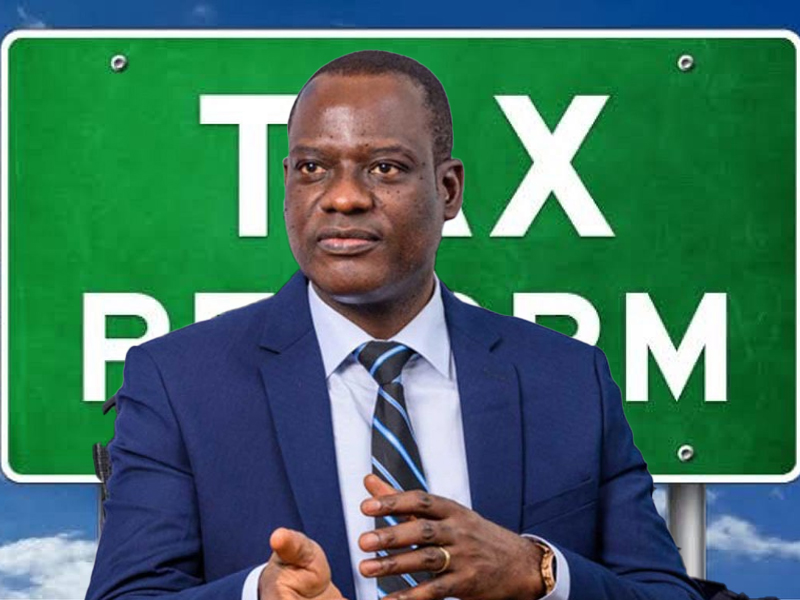







































Tax: Pensions, stipends, remote earnings of Nigerians in diaspora to be exempted – Taiwo Oyedele
 READ
READ
 WOULD
WOULD
Nigerian remote workers, retirees, and students in the diaspora will not pay taxes on their foreign-sourced income. This was made known by Taiwo Oyedele, Chairman of the Presidential Fiscal Policy and Reforms Committee.
He took to his Twitter page on Friday to provide answers to frequently asked questions. He explained that pensions, stipends, or remote work earnings of Nigerians in the diaspora will be exempted. This update aims to allay fears about the new laws and confirms that Nigeria will tax non-resident citizens’ income earned within its borders only.
His clarification relies on the fundamental concept of taxable status, which dictates that the liability for a non-resident is determined by the geographical location where the income legally arises, not simply where the Nigerian citizen receives the payment.
“Only income that arises in Nigeria is taxable for non-residents. Pensions and stipends from abroad are not taxed in Nigeria unless received for work done in Nigeria. Remote workers are taxed based on the rules in the country where they are resident or earn such income, not merely where payment is made.”
“For residents, worldwide income applies, subject to reliefs, allowances, and exemptions, e.g., low-income thresholds,” he said.
The reforms make the system in Nigeria fairer and more friendly to Nigerians in the diaspora, address the incidence of double taxation, align Nigeria with global best practice, simplify and provide clarity on where tax is payable or a filing obligation is applicable.
Read also: Understanding the new tax regime: All you need to know
Implications for citizens living in the diaspora
This clarification is particularly significant for the growing population of remote workers and the many Nigerian retirees living abroad. He detailed the following:
- The obligations of remote workers are determined by their country of residence or where the work is done. This will avoid the complexities and potential double taxation that a global tax net would create.
- Pension paid in a foreign currency or a stipend received while studying abroad is entirely safe from Nigerian tax, provided the funds are not for services rendered within Nigeria.

By establishing these precise geographical and operational boundaries, the committee has effectively reinforced a standard of predictable and rational policy, addressing a core concern of the diaspora community.
Read also: How to calculate your income tax as a Nigerian freelancer and remote worker
No double tax on foreign income and tax-free remittances
He confirmed that remittances (funds sent home) will not be considered taxable income under the new laws. This include genuine personal transfers, such as money sent for family upkeep, gifts, or community savings contributions, are exempted.
He emphasised that only earned incomes like wages, business profits, or investment returns is subject. The authorities are expected to issue guidelines to help distinguish between taxable and non-taxable cash inflows.
The Chairman also offered strong assurances against the possibility of double taxation. Oyedele made it clear that a non-resident individual will not be required to pay twice on the same income.

He confirmed that income earned abroad and brought into Nigeria by a non-resident is now explicitly exempted in Nigeria, regardless of whether tax was paid in the foreign country or not.
Furthermore, he highlighted that even where a Double Taxation Agreement (DTA) does not exist with a foreign country, the new laws already provide for a unilateral relief to ensure the same income is not taxed twice.
This position eliminates a major fear among the diaspora.
Residency rules clarified and filing requirements eased
Mr Oyedele also provided a detailed explanation on how tax residency is determined and simplified the requirements for Nigerians abroad. He clarified that it is determined by the 183-day rule, which is based on the cumulative number of days an individual is physically present in Nigeria within twelve months.
Non-residents, therefore, are only taxed on income they derive from Nigeria itself, such as rental income or dividends. He further noted that the issue of dual citizenship has no impact whatsoever on an individual’s status as either a resident or a non-resident in Nigeria.

Crucially, the need for a Tax Identification Number (TIN) and the obligation to file annual returns have also been significantly eased for the diaspora.
Oyedele stated that a TIN is not required, and non-residents are not obliged to file returns unless they earn employment or business income sourced from Nigeria. He pointed out that the same lenient rule applies to bank accounts: a TIN is only needed if the account is used for business purposes or to receive income.
Finally, the Chairman assured the public that the reforms include mandates for transparency, public reporting, and independent oversight to link collections to visible infrastructure and service delivery, with strong safeguards against corruption.
Read also: How to get a Nigerian ID before Jan. 2026 deadline for bank account holders

